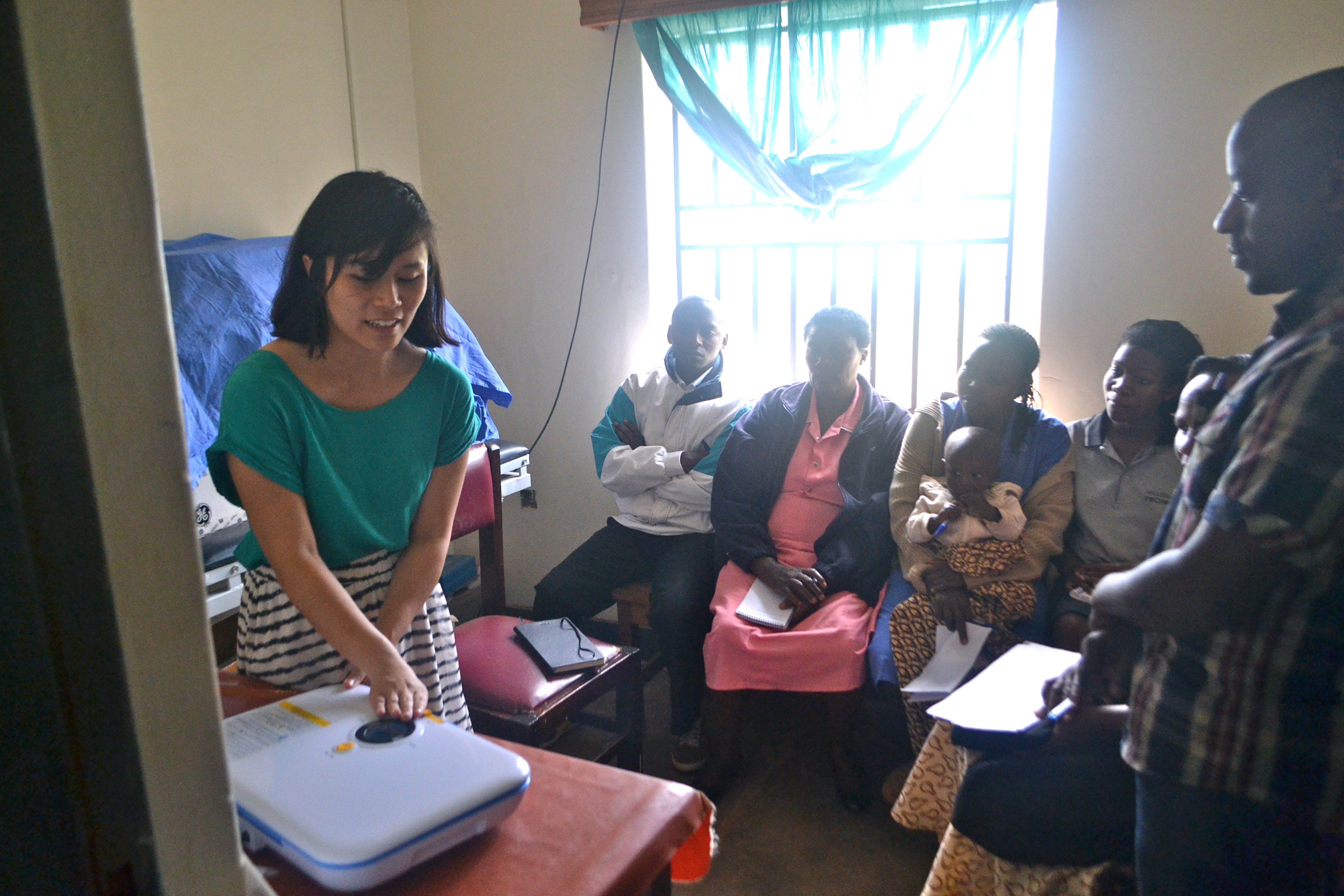“You know, we do not come because [another organization] gives us money to attend meetings,” a health worker told me bluntly as I waited for the health center’s workers to trickle into Millennium Villages Project’s monthly one-hour quality improvement meeting.
Part of the area that Uganda’s Millennium Villages Project serves is saturated with NGOs: Elizabeth Glaser Pediatric AIDS Foundation (EGPAF), STAR Southwest, JHPIEGO to name a few. As organizations strive to better serve the local population in the same geographic area, we often overlap in not only competition for funding but also in services and programming. In this case, this overlap can lead to incentive distortions in our well-meaning quest to motivate health workers to improve their performance.
At another health center, a nurse remarked to me, only half-jokingly, “You buy us lunch and soda! Then we will be here on time.” When our door-to-door campaign ran low on funds and monetary “facilitation” for participation ceased, the health unit staff and most local leaders promptly withdrew. This left only three to four individuals—all Millennium Villages Project health sector office team members—trudging up and down hills, desperately trying to visit as many households as possible.
Our first reaction is easily indignant outrage: you need little bribes to cajole you into providing better care to your fellow human beings? But then I wonder, are Westerners much different than these health workers in low-resource settings? How much more different is this from Americans wanting to attend trainings because the trainings happen to be in a cool location that your workplace will fund you to travel to? Or from everybody being much more enthused to attend a meeting if good food is present? When I worked in the U.S. Senate prior to Global Health Corps, staff members and interns would keep tabs on the many Congressional briefings providing free food and attend in droves if a delicious full meal was provided.
You are also more motivated to attend a training or meeting if you see your career as dynamic and the activity as an investment in your career: an opportunity for upward mobility, to build skill sets and take advantage of networking opportunities. Unfortunately, that is rarely the case in Uganda, where government health workers are too often overworked and paid too little and not on time. Why participate in an activity and take on extra work if there are no benefits for you?
I recently trained 78 health workers in the use of a baby warmer technology to fight neonatal hypothermia. We budgeted for lunch facilitation fees (10,000 UGX or $3.33 USD each) for six health workers at each of the 10 health centers; for comparison, the average casual laborer in Uganda earns 5,000 UGX ($1.67 USD) a day, and a meal in the villages where we work usually costs 2,000 UGX ($0.67 USD). For all of the health centers, more than six health workers showed up for the training. Some were not even health workers: the operation theater cleaners, the porters that guard the health center’s gates and care for the grounds. In addition, a good number of these extra health workers showed up late to the training, sometimes halfway through.
My Ugandan co-worker asked the first six health workers in front of everybody, “Now what would you like to do with the money? It is fixed. Would you like to share with everybody? It is up to you.” I thought the question applied social pressure to the first six trainees to share their money and later took my co-worker aside, “I feel like the money should just go the health workers that showed up on time—otherwise, it’ll decrease motivation to show up on time for trainings.”
My co-worker explained to me, “But yes, you see, these porters, these operation theater cleaners—when there are not enough health workers, they come and help. They deliver babies, they help with surgeries. If you do not share the facilitation money with all who attend the training, they will say, ‘Ah! You do not share the training money with us, and now you want us to do the work…’ They will not want to help out when needed.”
The trouble with incentives is that you never know how your incentive will affect another human being’s behavior. I worry about unintended consequences, about fostering dependency, about stripping away people’s intrinsic motivation attached to a task and making it solely about the extrinsic motivation: lunches, money – take it away, and they stop doing the task. This is not to say we should not provide incentives or stop attempting our development interventions, because they can produce very real, tangible positive outcomes. We can only try to anticipate how they may affect other human beings and dynamic systems, engage in discussions with locals on how to best effect change, and constantly iterate and adjust. It is always a work in progress.

